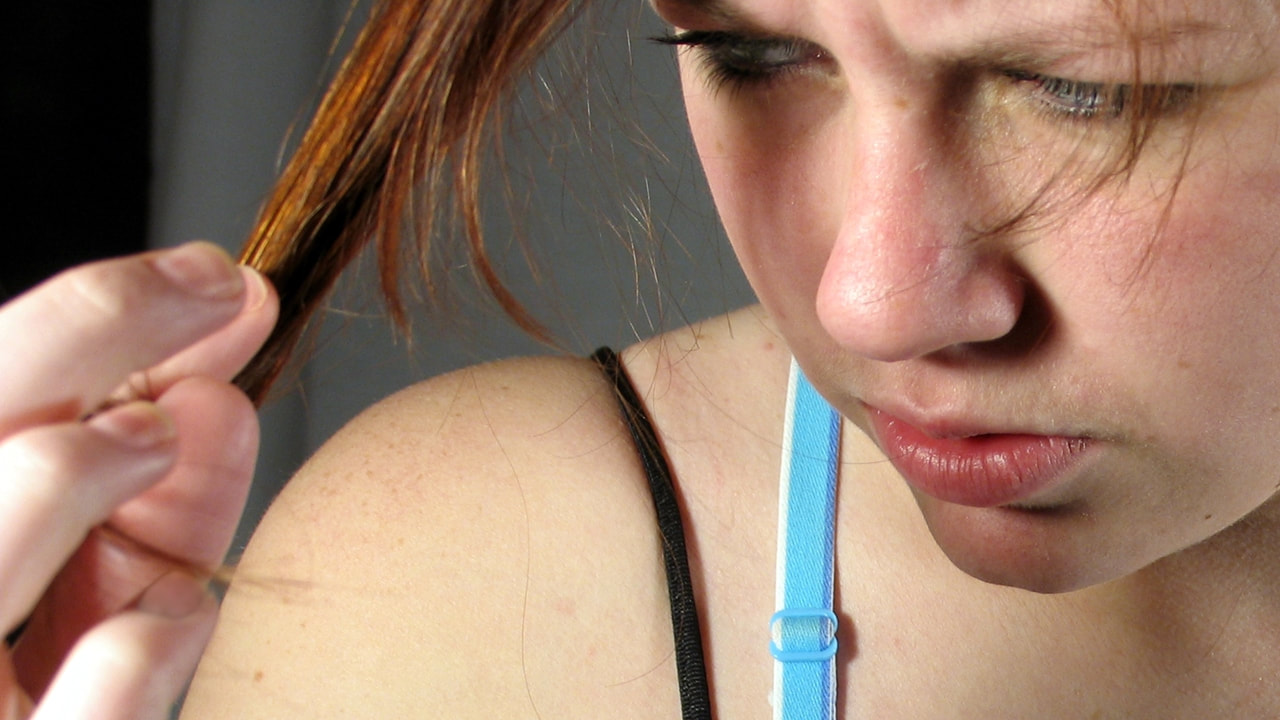Hair loss and Lyme Disease
A Dreadful but Temporary Symptom
As harmless as it is, hair loss can be a very undesirable symptom of Lyme Disease. There isn't much information as to how Lyme Disease affects the body in such a way that hair loss and thinning occurs, but there are many hypotheses. Rest assured though, people who have experienced hair loss from Lyme Disease, when all is said and done, the hair grows back to its original vitality. It is even possible for the hair to completely return before a person is completely healed.
It Has Nothing to Do With GeneticsWhile hair loss itself can be inscribed in a person's DNA, Lyme induced hair loss has nothing to do with a person's genetics. For those with Lyme Disease, if hair loss is to be a symptom, it usually begins to show itself when not just treatment for Lyme Disease is started, but when intense herxing occurs from that treatment protocol.
Indications that hair loss from Lyme is present include unusually large amounts of hair sitting on the drain of a bath rub, and even just running one's hand through the hair, only to find an unnecessary amount of hair in the hand afterwards.
|
|
One cause for consideration for Lyme induced hair loss would be thyroid disruption. Lyme Disease can affect the thyroid, so even if a person is not experiencing hair loss, it wouldn't be unwise to have the thyroid checked because it helps modulate so many other important bodily functions. Hair loss is a symptom of hypothyroidism and Lyme is known to cause it, but don't be surprised if you're experiencing hair loss and your thyroid test results come back normal.
Could the Cause Be Too Many Toxins?
It is understood that hair loss from Lyme Disease begins once a person starts to herx from their treatment protocol, so what is it about the herxing that can induce hair loss? Well, when Lyme bacteria are killed, they release endotoxins from their cell walls, and these toxins flood the body causing a massive inflammatory response from the body. The presence of these toxins are the only noticeable and apparent change that occurs within the body when hair loss begins, so it must be attributed to these toxins somehow.
So the hypothesis is now an elevated levels of endotoxins in the body released from the bacteria when they die is responsible for Lyme induced hair loss. What supports this hypothesis is that people experiencing hair loss from Lyme will notice that the amount or rate at which they're losing hair is directly correlated and reflective of how badly they're herxing (i.e., how many toxins are still present within the body). And that when herxing decreases, so does the symptom of hair loss and thinning.
The Cause Could Just Be High Stress
When endotoxins are released by dead spirochetes in the body, a person is going to feel bad. And because of the nature of a herxheimer reaction, a person is going to be not only highly stressed, but consistently stressed because of how often herxes occur, how badly they can be, and the extended length of time a person continues to experience them, which is reflective of the total load of bacteria within a person's body. Consistently being highly stressed can cause a medical condition known as Telogen Effluvium.
|
|
Telogen Effluvium is a type of temporary hair loss that can result from high stress situations. It has been found present in those who are dealing with infections. When a person is highly stressed, hormones run rampant through the body and can in turn disrupt hair follicle production and integrity (i.e., hair loss and thinning). Telogen Effluvium is a temporary hair loss which is based solely on a person's circumstances and environment. What this means is that when a person is no longer in a state of high stress, their hair will eventually regrow back without a trace or indication that hair loss or thinning has occurred.
Potential Solutions |
There is no definitive reason for why people with Lyme Disease lose their hair, but the most likely reason why could be high stress. Many have found though that different supplements and shampoos have given them support with their hair loss. Chelated magnesium, specifically Gematria MagSpectrum, has been found to help thicken people's hair during hair loss. Some have found that Nioxin Shampoo was able to help spurt new hair growth within 2 months of use. Another product that may be helpful is Jason's Thin to Thick line of products.
Some people also just choose to ride out the hair loss and thinning There is a comfort in knowing that Lyme induced hair loss and thinning is temporary. When the body reaches the appropriate circumstances, a person's hair will begin to thicken and regrow to the full volume it used to be. It also wouldn't hurt to check on your B vitamin levels just to be sure you're not deficient in another potential cause for hair loss during Lyme.
Resources
- "Effluviums (Telogen and More): Causes, Treatments, and More." WebMD. WebMD, n.d. Web. 14 July 2014. <http://www.webmd.com/skin-problems-and-treatments/hair-loss/effluviums?page=2>.
- Shah, Yagana. "5 Habits That Are Making You Lose Hair." The Huffington Post. TheHuffingtonPost.com, 30 Mar. 2014. Web. 14 July 2014. <http://www.huffingtonpost.com/2014/03/30/hair-loss-causes-_n_5027844.html>.
Also on Tired of Lyme
Refresh
Refresh
Subscribe to Tired of lyme!
Subscribe to Tired of Lyme's mailing list and get notified of new articles!





Comments